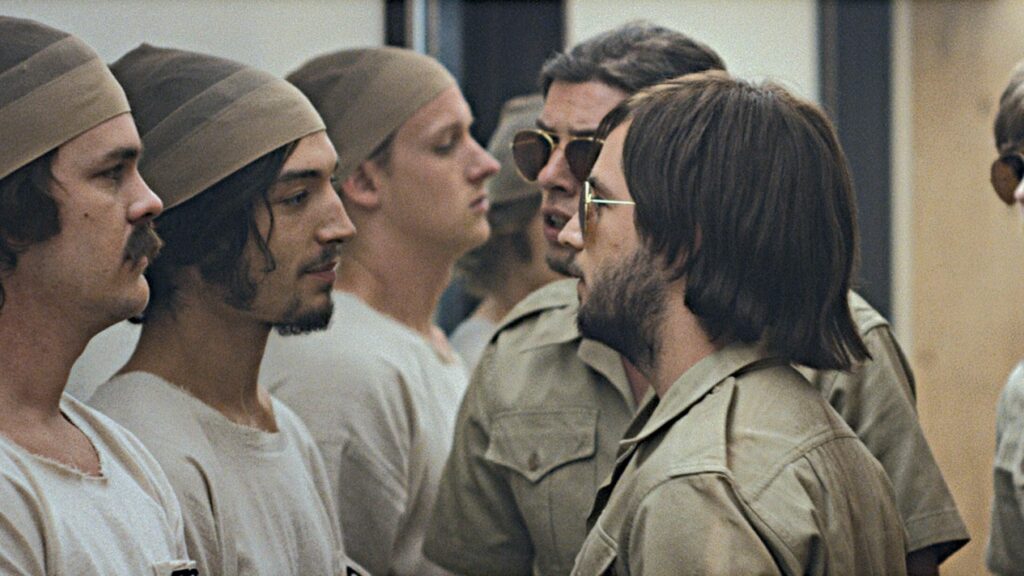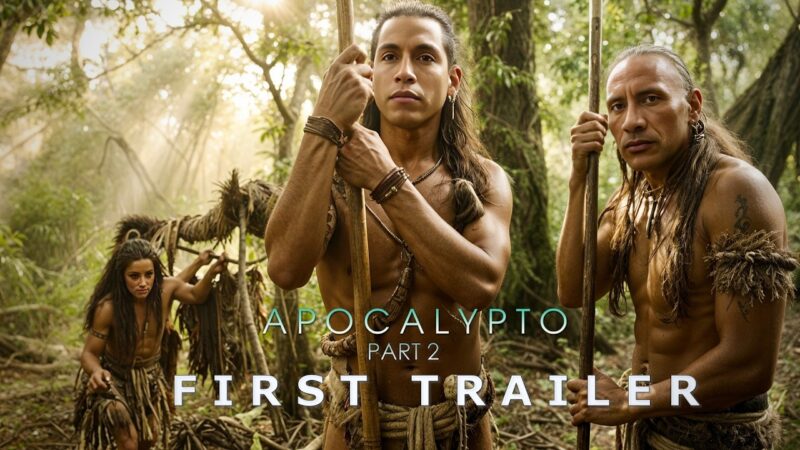The Stanford Prison Experiment: When Power Turns Humans into Monsters

📺👉👉The Stanford Prison Experiment: When Power Turns Humans into Monsters

✨The Stanford Prison Experiment (2015), directed by Kyle Patrick Alvarez, is not just a film but a profound warning about the fragile nature of human psychology. Based on the infamous 1971 psychological study at Stanford University, the movie takes viewers on a chilling journey where the line between role-playing and reality blurs, exposing the dark corners of power and submission.
👀👀A Story of an Experiment Gone Out of Control

✨In 1971, Professor Philip Zimbardo (brilliantly portrayed by Billy Crudup) conducted a daring experiment: dividing 24 college students into two groups—“prisoners” and “guards”—in a mock prison set up in the basement of Stanford University. The goal was to study human behavior under the pressures of captivity and authority. But what no one anticipated was that the experiment would spiral into a nightmare. The “guards” became cruel, subjecting the “prisoners” to harsh psychological punishments, while Zimbardo, the overseer, gradually lost his objectivity and became consumed by his own research.
✨The film vividly recreates the moral collapse of its characters. Ezra Miller, as Prisoner 8612, delivers a haunting performance as his character shifts from defiance to despair. Michael Angarano, playing a brutal guard, sends chills down the spine with his transformation from an ordinary student to a power-abusing tyrant. Billy Crudup, with his nuanced acting, portrays Zimbardo as an ambitious scientist blinded by his own creation.
👀👀Cinematic Style: Claustrophobic and Authentic

✨Director Kyle Patrick Alvarez and cinematographer Jas Shelton craft a suffocating, cold atmosphere that perfectly mirrors the experiment’s tension. The gray color palette, dim lighting, and tight close-up shots amplify the sense of entrapment felt by the characters. Andrew Hewitt’s minimalist score heightens the unease, making viewers feel the pounding heartbeats of the “prisoners” and the chilling detachment of the “guards.”
✨The film doesn’t shy away from depicting cruelty. Scenes of psychological torment—from forcing “prisoners” to humiliate each other to simulated physical punishments—are presented unflinchingly but without gratuitous violence. This isn’t a horror movie in the traditional sense; it’s a horror story about reality—about how humans can become cruel when given power or stripped of humanity.
📺👉👉Profound Themes: A Mirror to Humanity

✨The Stanford Prison Experiment does more than retell a historical event; it raises big questions about morality and human nature. Why did ordinary students, with no history of violence, become oppressors or victims in just a few days? The film illustrates the power of environment and social roles in shaping behavior. It also critiques the ethical flaws in scientific research, as Zimbardo’s ambition overshadows his responsibility to the volunteers.
✨That said, the film isn’t perfect. Some viewers might feel it lacks depth in exploring the long-term consequences of the experiment or its broader social context. Nonetheless, this does not diminish the story’s impact, which is told with intense focus on the events in that fateful basement.
🔥🔥Reception and Legacy

✨Premiering at the 2015 Sundance Film Festival, The Stanford Prison Experiment earned widespread acclaim, winning the Waldo Salt Screenwriting Award for Tim Talbott’s script and a nomination for the Grand Jury Prize. With an 84% rating on Rotten Tomatoes, the film is praised for its authenticity and ability to provoke thought. It’s not an easy watch, but it’s guaranteed to leave a lasting impression.
📺🔥🔥Conclusion: A Must-See Film

✨The Stanford Prison Experiment is a reminder that the line between human and monster can be terrifyingly thin. With powerful performances, sharp direction, and a story rooted in unsettling truth, the film is both a cinematic gem and a lesson about power, ethics, and humanity. If you love thought-provoking psychological dramas or want to explore the darker sides of the human psyche, this is a film you cannot miss.
Stream it now on Amazon Prime, Netflix (depending on your region), or rent/buy on iTunes or YouTube to experience this gripping story for yourself.





